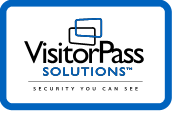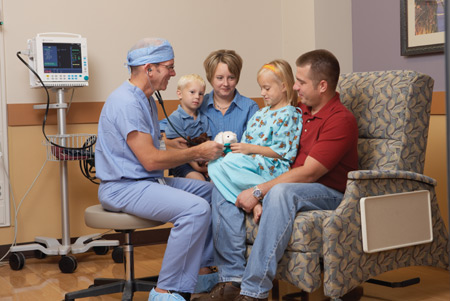Blog
Security Directors embrace Patient and Family Centered Care
by Paul Kazlauskas
Patient and Family Centered Care is an approach to the planning, delivery and evaluation of healthcare that is grounded in mutually beneficial partnerships among patients, families, and healthcare practitioners. By truly partnering with patients and families – not only involving them in decisions about their care, but also gaining the benefit of their help and insights to better plan and deliver care – patients can achieve better outcomes, and hospitals can improve the care for all patients and increase staff satisfaction.
Research has demonstrated that the presence and participation of family members and friends—as partners in care—provides cost savings, enhances the patient and family experience of care, improves management of illnesses, enhances continuity of care, and prevents hospital readmissions (Boudreaux, Francis, & Loyacono, 2002). The research is also clear that isolating patients at their most vulnerable times from the people who know them best places them at risk for medical error, emotional harm, inconsistencies in care, and costly unnecessary care (Cacioppo & Hawkley, 2003; Clark, 2003).
Current “visiting” policies in many of our nation’s healthcare facilities are inappropriately restrictive, costly, put patients at risk, and contribute to emotional suffering for both the patient and family. Here are some reasons why security directors should embrace the concept of Patient and Family Centered Care…
The family's role as a partner of the care giving team will continue to expand. As success stories with Patient and Family Centered Care spread, more and more healthcare facilities will adopt it’s guidelines. No one knows the patient better than their family and friends and they should be part of the patient’s care.
24/7 family presence in the patient room is or will soon be the norm. Healthcare facilities are slowly recognizing their security limitations. They have an open-door policy and can’t put security personnel in front of every patient’s room. It is only a matter of time before 24/7 family or friend presence is the norm across the country. The days of visiting hours ending at 8pm will soon be over.
Failing to get on board will leave Security looking like they are obstructionists, instead of team players. Security personnel should be provided with training on how to welcome and support the needs of patients and their families/friends. This is especially true in the most high-stress areas of a hospital such as emergency and critical care situations.
Studies show that unimpeded family presence reduces stress and anxiety. No one enjoys being a patient in a hospital. It is stressful and the patient’s release is out of their control. Having a close relative or friend with you, whenever you want them to be, will reduce stress associated with being there and allow for a greater ability to focus on getting better. The patient’s precious energy can be better focused on their recovery.
Families improve patient safety and can reduce the level of agitation in patients suffering from delirium. Patients who are confused and in a strange place they don’t know well can become agitated. They may try to escape and cause harm to those healthcare facility employees who try to stop them or calm them down. To the confused patient, the healthcare facility employee is a stranger in their way. A close relative or friend can aid in calming the patient down and provide a much needed familiar face during a stressful time.
Families provide the first line of defense against security concerns such as theft, assault. A patient may not be conscious or strong-enough to ward off any attempt by a person to steal or hurt them. Healthcare facilities have an open door policy compared to schools and many businesses across America. There is a very low ratio of security guards to patient rooms. Security guards can’t be everywhere, so having a physically and mentally abled relative or friend is a great line of defense.
Want the latest, best security practices delivered straight to your inbox? Enter your email address in the "Subscribe" area (on the left side navigation).
Download Free Whitepaper ›
Our exclusive "Guide to Choosing a Visitor Management System"
Follow us on Social Media for more security content.![]()
![]()
![]()
Posted on 4/1/2015



 Paul Kazlauskas
Paul Kazlauskas
 Andrew Jones
Andrew Jones
